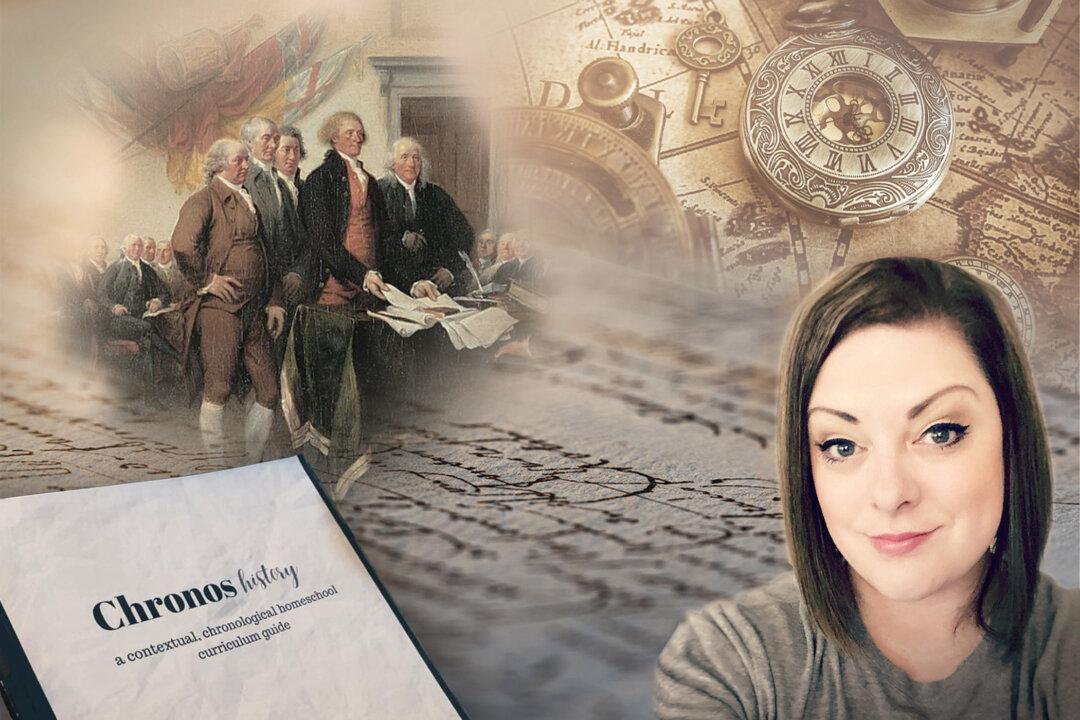A homeschooling mom with a deep concern for historical literacy in the United States has turned her expertise into a solution—a homeschooling history curriculum that breaks the mold of the classes taught in conventional schools.
Holly Metesh, 38, holds a master’s degree in history and runs a “chronological and balanced” history resource platform for homeschoolers, The Homeschool Historian. Mrs. Metesh and her husband live near Champaign, Illinois, with their three kids, whom she has homeschooled for the last nine years.





